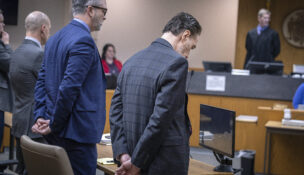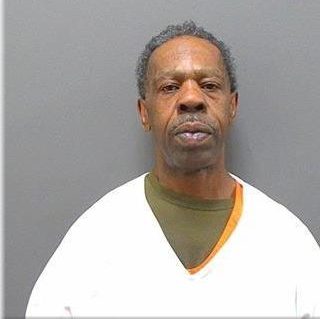Denial of new counsel found ‘arbitrary’
By: dmc-admin//May 26, 2008//
A state trial court’s “arbitrary” insistence on going to trial as scheduled, despite the defendant’s request for substitution of counsel and a continuance, will result in a new trial for the defendant.
On May 19, in a decision by Judge Terence T. Evans, the Seventh Circuit affirmed the granting of a habeas corpus petition last year by U.S. District Court Judge Lynn Adelman. Carlson v. Jess, 507 F.Supp.2d 968 (E.D.Wis.2007).
In 2002, Matthew S. Carlson was charged in Ozaukee County Circuit Court with sexually assaulting “Gino” on two occasions, once in 1996, and once in 1998.
A week before trial, approximately four months after charges were filed, Carlson moved for substitution of counsel and for a continuance, to give new counsel time to prepare.
Carlson was in custody at the time, and had been since the charges were filed.
The new attorney explained that she wished to explore Gino’s motives for making the allegation and to engage an expert to explain the significance of the many years that elapsed between the alleged incidents and their reporting.
In addition, Carlson had a prior conviction in 1996 for sexual assault of a child. After Carlson was convicted, Gino had been asked by grandparents if Carlson had ever assaulted him as well, and he replied that he had not.
Carlson’s attorney did not want to explore this at trial, because it would allow the jury to learn of the 1996 conviction. New counsel wanted to present the prior inconsistent statement to the jury, even if it meant the jury would learn of the prior conviction.
The trial court rejected the statements by Carlson and his attorney that communication had broken down; and refused to allow the substitution unless the new attorney would be able to proceed with trial the next day.
The trial proceeded as scheduled, the jury found Carlson guilty, and he was sentenced to 55 years in prison.
After exhausting his remedies in state court, Carlson sought federal habeas corpus review.
Judge Adelman granted Carlson’s petition, and the Seventh Circuit affirmed.
The court held that the state court unreasonably found that there was no breakdown in communication between Carlson and his attorney. The court found nothing in the record to support this finding.
The court then concluded that the state court’s holding denied Carlson’s right to his choice of counsel.
Noting that “trial dates open up all the time,” the court concluded, “Even the inconvenience of pushing the trial back a month or so would be easily outweighed by Carlson’s interest in having his counsel of choice properly prepared to defend him against such serious charges.”
The court also noted that, inasmuch as Carlson was in custody, he had nothing to gain from seeking to delay the trial unnecessarily, and that he had no history of “gaming” the system.
Finally, the court noted that the length of the delay that Carlson sought was not even clear from the record.
The court wrote, “We do not know how long [counsel] would have needed to prepare because the trial judge never asked her. Apparently, ANY delay would have been unacceptable to the trial judge. That sort of rigidity can only be characterized as arbitrary (emphasis in original).”
Weighing Carlson’s interests against the inconvenience to the state, the court found the state’s inconvenience minimal.
Because the victim had waited four to six years before reporting the assaults, the court concluded there was no risk of the victim forgetting relevant information before trial in a couple months.
Turning to the issue of prejudice, the court concluded that the denial of counsel of choice had an adverse effect on Carlson.
As noted, the two attorneys had different trial strategies regarding the prior inconsistent statement by the complainant and Carlson’s prior conviction.
Finding that admitting the prior conviction to attack the victim’s credibility was a reasonable defense, the court concluded that the denial of choice of counsel had an adverse effect.
Accordingly, the court ordered that the State retry Carlson within 180 days or release him from custody.
Analysis
The court reaches the correct decision, but two footnotes that the court includes are of questionable relevance, and could be considered misleading.
In one, the court notes that Ozaukee County is “rather small, only some 86,000 residents,” and is “fairly wealthy.”
In the second, the court wrote “We also note that Ozaukee County, perhaps because it’s fairly affluent, does not appear to be a hotbed of criminal activity. According to the Wisconsin courts Web site, the judges in Ozaukee conducted a total of only 22 jury trials in all classes of criminal cases — felony, misdemeanor, and criminal traffic — in 2007. That’s not a very heavy diet of cases compared to its neighboring county to the south (Milwaukee) where 389 such jury trials were conducted in 2007.”
However, this footnote fails to note that Ozaukee County has only three judges, while Milwaukee has 47.
That equals to 7.3 criminal jury trials per judge per year in Ozaukee, compared to 8.3 in Milwaukee. The difference is not nearly as great as the raw number of trials suggest.
In addition, many counties have a much smaller population than Ozaukee, but if they have only one judge, their dockets could be very tight.
Despite this, the court’s footnotes imply that smaller counties in the state have an unlimited ability to reschedule trials, something that, in many of those counties, is not the case.
A final noteworthy aspect of the opinion is that this case involved retained, rather than appointed counsel, something the court noted.
The court wrote, “In casting Carlson’s arguments aside, the judge may have been attempting to follow precedent on APPOINTED counsel and the right to effective assistance of counsel, which sets higher standards for relief than the right to be represented by RETAINED counsel of choice (emphasis in original).”
Without a new attorney already retained, with a different trial strategy, the result may well have been different.
Legal News
- FBI launches criminal investigation into Key Bridge collapse
- Man charged in slaying after woman’s leg found at Milwaukee-area park
- Minnesota man guilty in fatal stabbing of teen on Wisconsin river, jury finds
- Wisconsin teen sentenced in bonfire explosion that burned at least 17
- Wisconsin man who broke into home, ate victim’s chicken, slept in victim’s bed, receives prison and jail sentences
- Judge refuses to dismiss Hunter Biden’s gun case
- House passes reauthorization of key US surveillance program after days of upheaval over changes
- Milwaukee Police officer traveling to Georgia training retires before facing discipline
- Evers to ask legislature to approve largest increase in state support for UW System in two decades
- 7th Circuit Court of Appeals proposes new rules
- Federal agencies allege toxic work environment for women in new report
- Wisconsin man sentenced for sex trafficking a woman and a minor online
WLJ People
- Power 30 Personal Injury Attorneys – Russell Nicolet
- Power 30 Personal Injury Attorneys – Benjamin Nicolet
- Power 30 Personal Injury Attorneys – Dustin T. Woehl
- Power 30 Personal Injury Attorneys – Katherine Metzger
- Power 30 Personal Injury Attorneys – Joseph Ryan
- Power 30 Personal Injury Attorneys – James M. Ryan
- Power 30 Personal Injury Attorneys – Dana Wachs
- Power 30 Personal Injury Attorneys – Mark L. Thomsen
- Power 30 Personal Injury Attorneys – Matthew Lein
- Power 30 Personal Injury Attorneys – Jeffrey A. Pitman
- Power 30 Personal Injury Attorneys – William Pemberton
- Power 30 Personal Injury Attorneys – Howard S. Sicula











